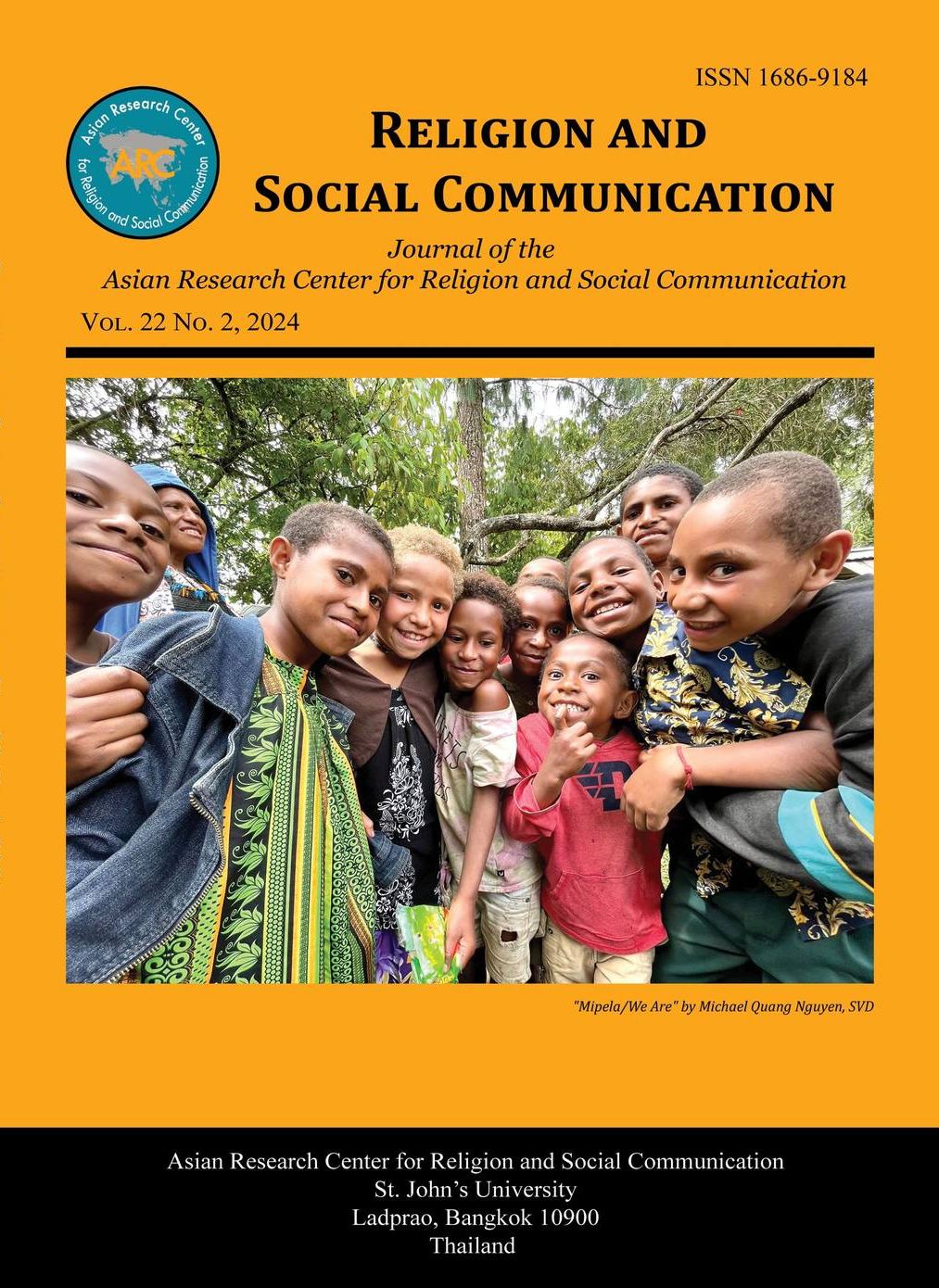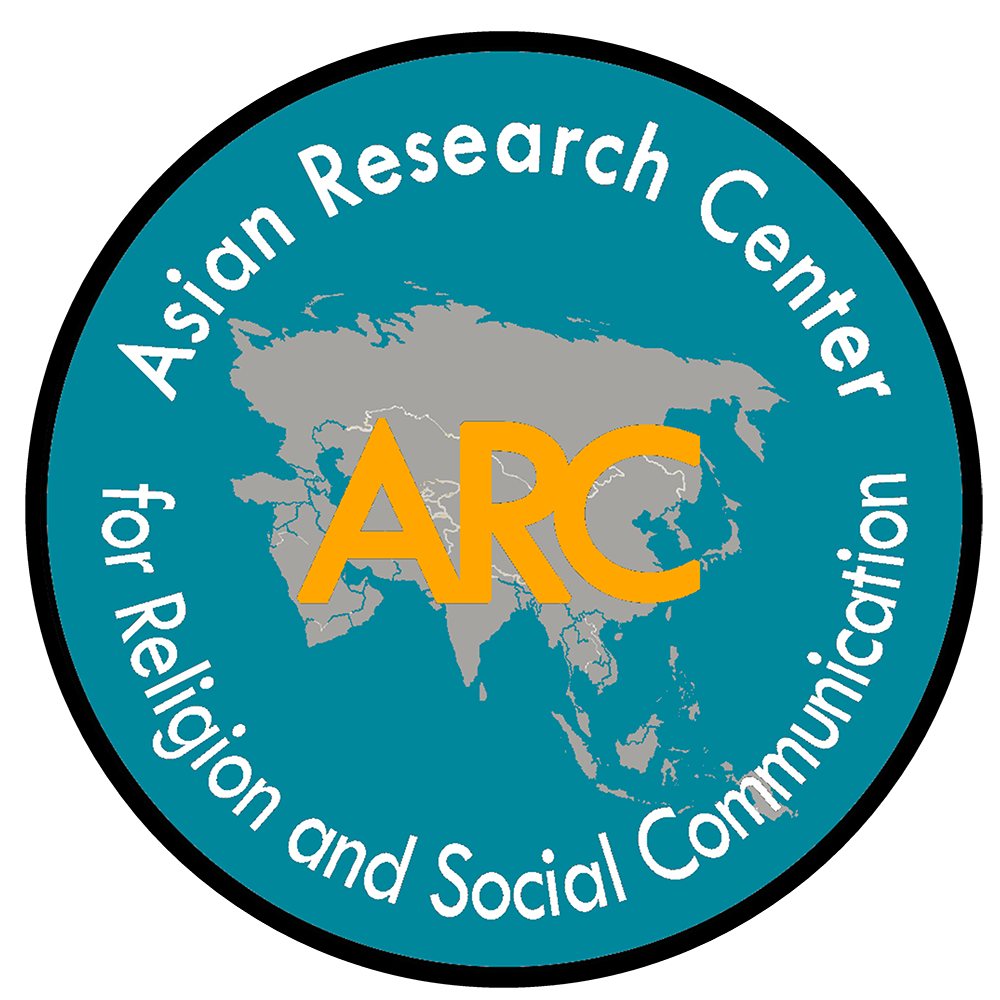A Case Study of Web-Based Communication for Online Teaching and Learning at a Christian University in Buddhist Thailand
RELIGION AND SOCIAL COMMUNICATION VOLUME 22, NO. 2 (2024)
ISSN 1686-9184
Author
Benya Lertsuwan, Rey Ty, Wutthichula Khunpatwattana, and Benjamaporn Mekara
Abstract
Quality education, which is the fourth element of the sustainable development goals of the United Nations, suffered dramatically in the time of the pandemic. Unprepared, most academic institutions started to embark on web-based education. This research addressed the most and least effective learning experiences for both students and instructors in online learning and teaching. This case study employed both descriptive statistical data and qualitative information to have a well-rounded understanding of the phenomenon of digital education. This study used non-random, purposive, convenience, snowball, and quota sampling methods to invite research collaborators. Thematic analysis was employed to obtain rich qualitative insights that supplement the quantitative data. The raw data was collected from both instructors and students who were engaged in online education during the pandemic. The findings revealed that both instructors and students complained that the least effective learning experiences is the poor internet connectivity, as it is an obstacle that interrupted smooth flowing online learning and teaching. By presenting real-world insights, stressing significant findings, and offering recommendations, this article contributes to a more profound comprehension of web-based classroom. In this period of re-globalization after the end of the pandemic, online education is now mainstream.
Keywords
communication, education, feedback, online learning, online teaching
References
Al-Fraihat, Dimah, Mike Joy, Ra’ed Masa’deh, and Jane Sinclair. “Evaluating E-Learning Systems Success: An Empirical Study.” Computers in Human Behavior 102 (January 2020): 67–86. https://doi.org/10.1016/j.chb.2019.08.004.
Apostolópoulos, Dīmī́trīs G. Merleau-Ponty’s Phenomenology of Language. London, New-York: Rowman & Littlefield International, Ltd, 2019.
Aristovnik, Aleksander, Konstantinos Karampelas, Lan Umek, and Dejan Ravšelj. “Impact of the COVID-19 Pandemic on Online Learning in Higher Education: A Bibliometric Analysis.” Frontiers in Education 8 (August 3, 2023): 1225834. https://doi.org/10.3389/feduc.2023.1225834.
Bates, T. Teaching in a Digital Age: Guidelines for Designing and Delivering Effective Online Learning. New York, NY: Routledge, 2019.
Braun, Virginia, and Victoria Clarke. Successful Qualitative Research: A Practical Guide for Beginners. Los Angeles: SAGE, 2013.
Castells, M. The Rise of the Network Society. New York, NY: Blackwell, 2000.
Creswell, John W., and J. David Creswell. Research Design: Qualitative, Quantitative, and Mixed Methods Approaches. Sixth Edition. Los Angeles. SAGE Publications, 2018.
Dhawan, Shivangi. “Online Learning: A Panacea in the Time of COVID-19 Crisis.” Journal of Educational Technology Systems 49, no. 1 (September 2020): 5–22. https://doi.org/10.1177/0047239520934018.
Dos Santos, Luis M. “Online Learning after the COVID-19 Pandemic: Learners’ Motivations.” Frontiers in Education 7 (September 20, 2022): 879091. https://doi.org/10.3389/feduc.2022.879091.
Fernández-Batanero, José María, Marta Montenegro-Rueda, José Fernández-Cerero, and Pedro Tadeu. “Online Education in Higher Education: Emerging Solutions in Crisis Times.” Heliyon 8, no. 8 (August 2022): e10139. https://doi.org/10.1016/j.heliyon.2022.e10139.
Garrison, D. R., and T. Anderson. E-Learning in the 21st Century: A Framework for Research and Practice. London: Routledge/Falmer, 2003.
Gillespie, Richard. Manufacturing Knowledge: A History of the Hawthorne Experiments. Studies in Economic History and Policy. Cambridge: Cambridge University Press, 1993.
Golden, Alexandrea R., Emily N. Srisarajivakul, Amanda J. Hasselle, Rory A. Pfund, and Jerica Knox. “What Was a Gap Is Now a Chasm: Remote Schooling, the Digital Divide, and Educational Inequities Resulting from the COVID-19 Pandemic.” Current Opinion in Psychology 52 (August 2023): 101632. https://doi.org/10.1016/j.copsyc.2023.101632.
Gomez, L. F., and D. I. Ballard. “Communication for the Long Term: Information Allocation and Collective Reflexivity as Dynamic Capabilities.” International Journal of Business Communication 50, no. 2 (April 1, 2013): 208–20. https://doi.org/10.1177/0021943612474992.
Ilnicki, Adam. “Understanding the Role of Feedback in Communication.” Samelane (blog), March 17, 2023. https://samelane.com/blog/what-is-the-importance-of-feedback-in-communication/.
Lincoln, Yvonna S., and Egon G. Guba. “Establishing Dependability and Confirmability in Naturalistic Inquiry through an Audit.” New York, N.Y., 1982. https://files.eric.ed.gov/fulltext/ED216019.pdfhttps://files.eric.ed.gov/fulltext/ED216019.pdf.
Marcus, Jon. “What Researchers Learned about Online Higher Education during the Pandemic: Its Massive Expansion Created a Worldwide Laboratory to Finally Assess How Well It Works.” Higher Education (blog), October 6, 2022. https://hechingerreport.org/what-researchers-learned-about-online-higher-education-during-the-pandemic/.
Merleau-Ponty, Maurice. Phenomenology of Perception. Translated by Donald A. Landes. Abingdon, Oxon; New York: Routledge, 2012.
———. Phenomenology of Perception. Translated by Colin Smith. International Library of Philosophy and Scientific Method. Nevada: Franklin Classics, 2018.
Nikolopoulou, Kassiani. “What Is Non-Probability Sampling? | Types & Examples.” Knowledge Base > Methodology. Scribblr (blog), July 20, 2022. https://www.scribbr.com/methodology/non-probability-sampling/.
Noddings, Nel. “The Aims of Education.” In Fifty Modern Thinkers on Education: From Piaget to the Present, edited by J. A Palmer, 65–70. Abingdon-on-Thames, Oxfordshire: Routledge, 2005.
Payap University. “A Brief History of the Church in Thailand.” Payap University Archives, 1983.
Sanchez, Tessa. “Blessed Are the Meek Missionaries in Thailand.” Christianity Today (blog), May 23, 2023. https://www.christianitytoday.com/ct/2023/may-web-only/meekness-thailand-buddhism-christianity-evangelism-respect.html.
Strauss, Anselm L., and Juliet M. Corbin. Basics of Qualitative Research: Techniques and Procedures for Developing Grounded Theory. 2nd ed. Thousand Oaks: Sage Publications, 1998.
Torraco, Richard J. “Writing Integrative Literature Reviews: Guidelines and Examples.” Human Resource Development Review 4, no. 3 (September 2005): 356–67. https://doi.org/10.1177/1534484305278283.
———. “Writing Integrative Reviews of the Literature: Methods and Purposes.” International Journal of Adult Vocational Education and Technology 7, no. 3 (July 2016): 62–70. https://doi.org/10.4018/IJAVET.2016070106.
UNESCO. The Salamanca Statement and Framework for Action on Special Needs Education. Paris, France: UNESCO, 1997.
Zheng, Meixun, Daniel Bender, and Cindy Lyon. “Online Learning during COVID-19 Produced Equivalent or Better Student Course Performance as Compared with Pre-Pandemic: Empirical Evidence from a School-Wide Comparative Study.” BMC Medical Education 21, no. 1 (December 2021): 495. https://doi.org/10.1186/s12909-021-02909-z.
Ziemer, Rodger E., and William H. Tranter. Principles of Communication: Systems, Modulation, and Noise. Seventh edition. Hoboken, New Jersey: John Wiley & Sons, Inc, 2015.
Pages 336-371
DOI: https://doi.org/10.62461/LTKM042124
Submitted: February 14, 2024; Accepted: April 21, 2024; Published: June 30, 2024





